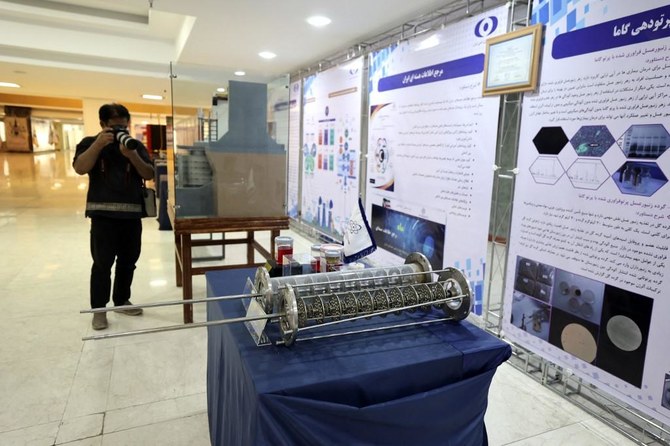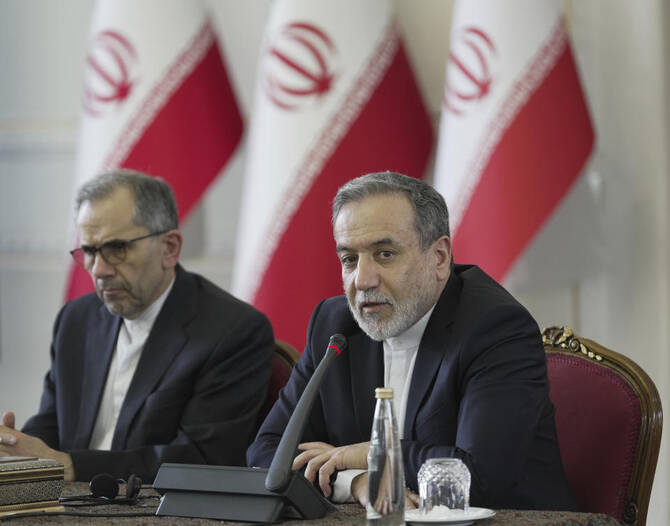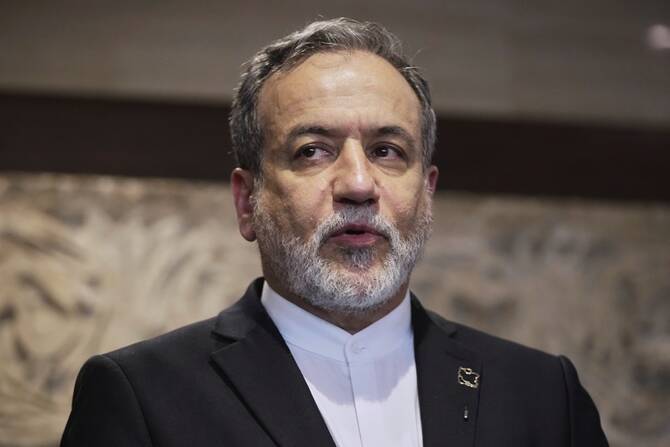BRUSSELS/TEHRAN: The head of the UN atomic watchdog said on Tuesday Iran was dragging its feet on information about uranium particles found at old undeclared sites in the country, raising the prospect of a clash on the issue in June.
Talks to revive Iran’s 2015 nuclear deal with world powers have been on hold since March, chiefly over Tehran’s insistence that Washington remove the Islamic Revolutionary Guard Corps, its elite security force, from the US Foreign Terrorist Organization list.
While not technically part of the nuclear deal, one issue causing tension and distrust between Tehran and the West had been Iran’s demand for the closure of the International Atomic Energy Agency’s investigation into uranium particles found at three apparently old but undeclared sites.
Those sites suggest that Iran had nuclear material there that it did not declare to the agency. Iran and the UN nuclear watchdog had agreed to a three-month plan on March 5 for a series of exchanges after which IAEA chief Rafael Grossi “will aim to report his conclusion by the June 2022 (IAEA) Board of Governors” meeting, which begins on June 6.
However, Western diplomats have said there is little sign that Tehran has given satisfactory answers to the watchdog.
Speaking to the EU Parliament, Grossi said he remained extremely concerned by the situation and had told Iran that he found it difficult to imagine that the nuclear deal could be finalized if the IAEA had serious doubts about things that it should have known about.
“I am not trying to pass an alarmist message that we are at a dead end but the situation does not look very good. Iran has not been forthcoming in the type of information we need from them,” Grossi told European Parliament committees via webstream.
The EU’s Iran nuclear talks coordinator Enrique Mora is arriving in Tehran in what he has described as the last bullet to save the deal, which also includes Russia, China, France, Britain and Germany.
Western officials have largely lost hope that it can be resurrected, sources familiar with the matter said, forcing them to weigh how to limit Iran’s atomic program even as Russia’s invasion of Ukraine has divided the big powers.
“We are, of course, still hopeful that some agreement is going to be reached within a reasonable time frame, although we have to recognize the fact that the window of opportunity could be closed any anytime,” Grossi said.
Meanwhile, the death sentence of Swedish-Iranian national Ahmadreza Djalali is on the agenda and will be carried out, Iran’s judiciary spokesperson Zabihollah Khodaian said on Tuesday, without giving a date as to when the execution will take place.
Last week, Iran’s semi-official ISNA news agency reported that the Iranian-Swedish researcher, sentenced to death on charges of spying for Israel, will be executed by May 21.
In a separate development, Iran on Tuesday described as “unacceptable” upstream dam-building by neighboring Turkey on shared waterways, calling on its neighbor to cease such activity.
“Turkey’s construction of dams on the border waters is unacceptable and we oppose it,” Iranian Foreign Minister Hossein Amir-Abdollahian was quoted as saying by state news agency IRNA.
He told parliament that the issue had been raised “at least three times these past months during two face-to-face meetings in New York and Tehran and a phone call with the Turkish foreign minister to express our disapproval.
“I asked him to pay particular attention to the construction of dams on the River Aras,” he added.
Amir-Abdollahian noted that while “there is no bilateral agreement … on water cooperation, as neighbors, we asked the Turkish government four months ago to form a bilateral committee on water to respond to concerns in this domain.”
His remarks come as Iran has faced frequent droughts in recent years, caused in part by climate change, as well as dam-building in neighboring countries.
But alongside Turkey, Iran itself has been responsible for building dams on shared rivers with its neighbor Iraq, threatening access to water there.
Turkey’s dam on the Aras has nonetheless posed a particular threat to water availability in Iran.
Neither country is party to the 1997 UN Watercourses Convention that regulates the use of transnational water resources.
Reuters/AFP






















